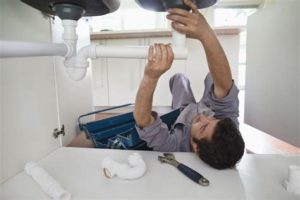 Andrew, who plumbed my house, quit the MFA program at Stanford to work in his uncle’s plumbing business. “The best writer in our group, one year ahead of me, struggled to find a job. If it was so hard for her, what hope was there for me?” He explained, while fixing my dishwasher. While he curls under my sink, we chat about who we are reading, who we should read next. When he went to Yosemite, he texted me photos of the rainbow over the falls; he had hiked six miles to get the right angle.
Andrew, who plumbed my house, quit the MFA program at Stanford to work in his uncle’s plumbing business. “The best writer in our group, one year ahead of me, struggled to find a job. If it was so hard for her, what hope was there for me?” He explained, while fixing my dishwasher. While he curls under my sink, we chat about who we are reading, who we should read next. When he went to Yosemite, he texted me photos of the rainbow over the falls; he had hiked six miles to get the right angle.
Martin installed the new cat doors and fixed the curtain rod that was pulling out of the sheetrock. He is from Mexico City, and keeps his horse in El Sobrante. His favorite author is Gabriel Garcia Marquez.
Frank, who built the redwood fence that keeps out the deer, recited Frost to me as he worked once he knew I wrote poetry. And yesterday, while Rob was replacing the ballast in the fluorescent in my husband’s workroom, we talked about Joan Didion’s essays versus her fiction.
Most of us of a certain age in California have some practical skills left over from the sixties and seventies when it was “back to the land” and DIY before the acronym existed. We wanted to be off the grid, to know how to do real, concrete things. No one had the money to hire someone to build or repair anything. Some of us went on to use those skills professionally.
I learned to saw and nail straight, gap spark plugs, change a flat, wire a simple switch, solder a joint, replace a worn washer in a faucet, before giving up on writing stories for a living and turning to technical writing.
Thinking about this the other day triggered my vague recollections of Homage to Catalonia, specifically that brief, magical period Orwell describes when a kind of general equality prevailed. No one tipped. Everyone—worker, writer, server—had equal social standing. Here in the People’s Republic of Berkeley, it’s not quite that way. But there is a blurring of class distinction, a basic literacy across the spectrum of occupations. At the local supermarket it’s possible to have a thoughtful exchange with the checker, even if it’s only about what “pasture raised” really means.
At the end of our conversation about Joan Didion, Rob said, “Yeah, seems like there’s been a lot of buzz about her lately.” “Well,” I responded, “She died. That will do it.”